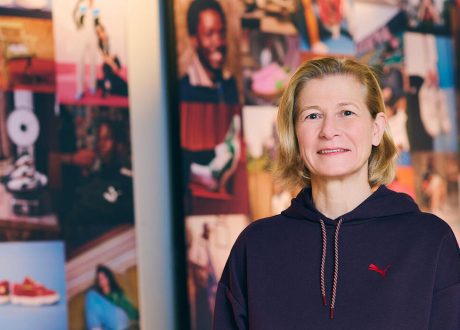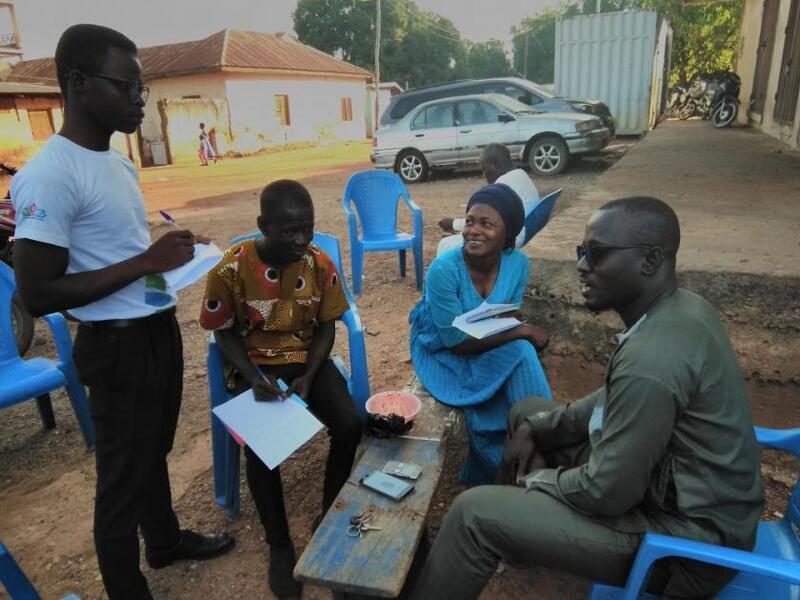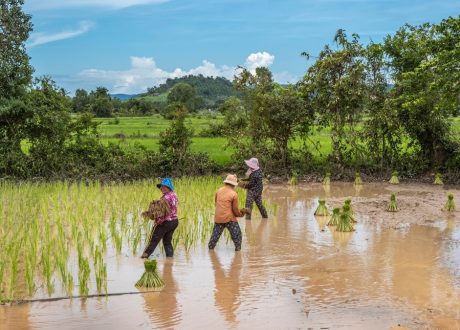
PUMA cut greenhouse gas emissions by 24% in 2023
PUMA has already made strong progress in reducing its greenhouse gas emission over the past ...

A Ghanaian national came up with an innovative idea to use rice husk waste in establishing eco-friendly toilets in lieu of open defecation which is widespread in Ghana and contributes to the spread of bacterial diseases such as cholera and diarrhea.
The tropical climate of Tamale, in northern Ghana, makes its soil favorable for the cultivation of staple cereals, legumes and tubers, and rice is a very popular food. But when milling rice, the husk on the outer part of the grain is often thrown away—wasted.
Yet the husk has unique physical and chemical properties that are not being harnessed in Ghana and across many other African countries. The 25-year-old Hyginus Laari—a regional finalist in the Young Champions of the Earth prize in 2018—decided to change this, using waste rice to address the problem of open defecation.
His idea is an eco-toilet, installed using boards made from rice husks. The husks are first dried and screened for particles of the right size. Then, they are blended and a special adhesive in liquid form is sprayed to make a sheet. The sheets are then compressed, heated, cooled, trimmed and sanded down.
The toilets are made using a granite flooring. A commode is then inserted and pipes leading toward a pit, and rice-husk panels are screwed into place to complete the walls around the toilets. Laari is now looking for funding to scale up his idea.
“Improper waste management has serious health and environmental consequences. If it persists, it will undermine Africa’s efforts to achieve the Sustainable Development Goals,” Abdouraman Bary, UN Environment Program’s Chemicals, Waste and Air Quality Africa sub-program coordinator, said.Isaac Emmanuel, from Covestro, one of the world’s leading polymer manufacturers which drives the Young Champions of the Earth Prize, worked alongside Laari to help him develop his idea further.
“It was very fulfilling to interact with Hyginus and share in igniting new avenues for his idea,” he said. “Though the challenges are enormous, youth like him who are full of energy and hope keep up the positive spirit in all of us.”
Laari said he seeks to install household eco-toilet facilities across communities in Ghana and Africa. And, to create sanitation awareness across Ghana and Africa—most recently through a mobile application. “As young people, we are the leaders of tomorrow. We must be on the front line of world development. My vision is to continue to reach out and inspire more young people to solve environmental problems, especially those addressed by the Sustainable Development Goals, contributing to the 2030 agenda,” he said.
PUMA has already made strong progress in reducing its greenhouse gas emission over the past ...
The United Nations Trade and Development (UNCTAD) urged during the 29th United Nations Climate Change ...
About 140 oil and gas companies have committed to credibly measuring and reducing methane emissions ...


اترك تعليقا